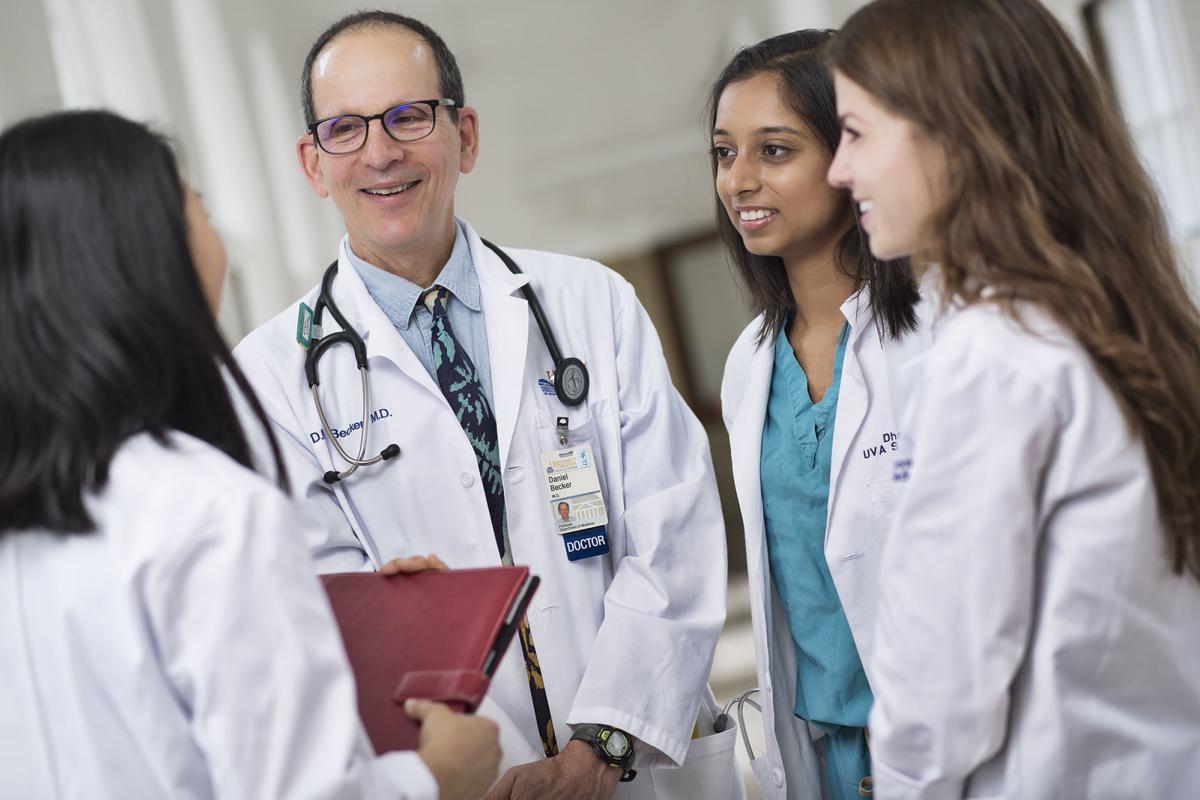Fostering the Art of Medicine
EVERY DAY, NEW SCIENTIFIC BREAKTHROUGHS are leading to innovative new treatments for disease. But is science alone enough? For many patients—and their physicians—good health goes well beyond medical interventions. In UVA’s Center for Biomedical Ethics and Humanities, medical and nursing students and faculty learn to look at patients holistically—tapping into their personal experiences and backgrounds to help them heal.
“We help our students and colleagues learn to pay the right attention to their patients, to find out who they are outside the exam room,” says Daniel Becker, MD, MPH. “Who were they before they were sick? Do they have support from family or friends? There are ways of listening and seeing that lead to improved outcomes.”
Becker, the Tussi and John Kluge Professor of Palliative Medicine, directs UVA’s Center for Biomedical Ethics and Humanities, an interdisciplinary community of scholars, teachers, and practitioners who explore the connections between illness, health, and the humanities.
Recently, Carol Angle, MD, made a $1 million gift to endow the center’s first faculty development fund. Angle, a pediatric nephrologist and toxicologist, conducted groundbreaking studies on the effects of lead poisoning in the 1950s and co-founded the nation’s first poison control center in 1957. The fund she established will provide research support to a faculty member with an interest in biomedical ethics, humanities, or social sciences.
“Medicine sets a high bar,” says Angle. “We ask for professional competence, critical thinking, honesty, and integrity. At graduation, new physicians are far more worried about whether they can handle a cardiac arrest than give support in a hospice setting. In time, most clinicians develop a comfortable rapport with patients. Our current medical curriculum works to build that understanding and empathy. The Center for Biomedical Ethics and Humanities plays a large role in this process and extends the ways that personal support from a physician can help patients make informed decisions.”
“This endowment will support our efforts to ensure that our medical and nursing communities continue to value the essential communication skills necessary to be an excellent clinician: seeing, listening, finding meaning, making meaning,” says Becker, who retires next year after 33 years at UVA. “In my career, I’ve been very fortunate to know people like Dr. Angle and her extraordinary family.”
As part of UVA’s medical community, the center offers programs such as Medical Center Hour, a public forum on timely medical topics; an online literary journal, Hospital Drive magazine; summer research opportunities for medical students with diverse backgrounds; elective courses for medical, nursing, law, business, and public health students looking for interdisciplinary experiences that link healthcare to social and cultural trends; and special electives that offer 1:1 mentoring in writing, visual art, or music.
“A background in ethics or the humanities helps us think about patients differently,” Becker explains. “Clinical work is stressful, and clinicians can learn to be less apt to complain or judge; more apt to wonder, to keep an open mind, to remain enthralled by the variety of human experience, to stay humble.”
“I have been one of Dr. Becker’s patients since 2000 and have a respect for him as a superb and empathetic physician,” says Angle. “I hope that this fellowship fosters physicians in his mold. This is an excellent program, and supporting it is deeply rewarding.”

